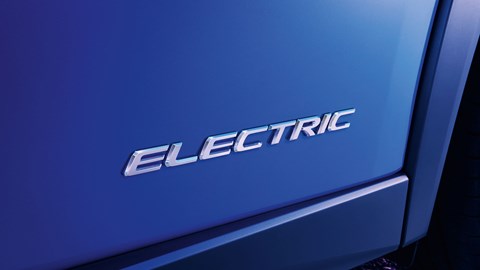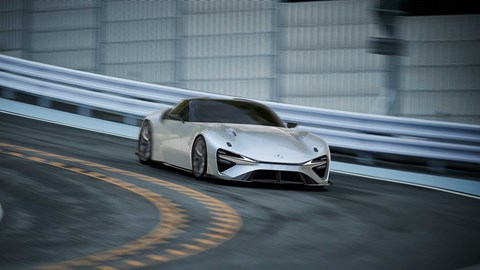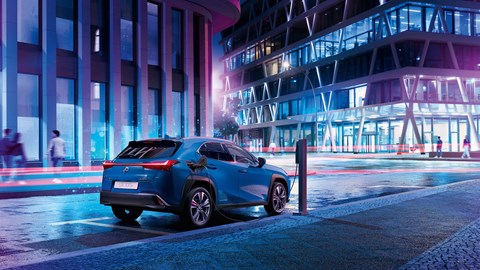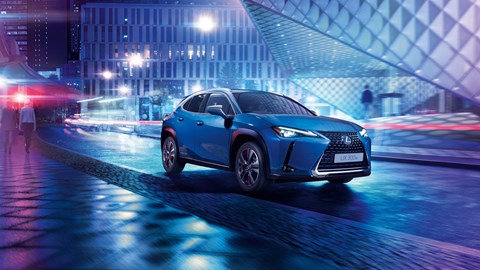► Lexus hints at solid state future
► Supercar has a low two-second 0-62mph
► Revives the spirit of the LFA
The next Toyota president Koji Sato is already making changes, and the first will see Lexus focus on electric vehicles. The move comes just weeks after he was announced as the replacement for Akio Toyoda, and will see the premium Lexus brand become the spearhead for the company’s EV offerings.
Sato is yet to formally take the reins of Toyota – this will happen on April 1st – but he’s already fixing Toyota’s flat-footed electric strategy. Despite have a huge lead in hybrid and battery tech with cars such as the Prius, Toyota has a below average offering when it comes to EVs. And as one of our recent efficiency tests showed, its bZ4X SUV has a truly disappointing range.

Despite talk of focusing on EVs, Sato maintains that the brand will continue to keep its powertrain options open. ‘This is not a fast pivot towards battery EVs,’ said the new boss.
Sato also revealed that Toyota and Lexus still have a target of selling 3.5 million EVs by 2023 – though it remains to be seen what the split of Toyota– and Lexus-badged cars will be.
Back in 2021 Akio Toyoda promised that buyers will have 30 Toyota electric cars vehicles to choose from by 2030. That figure included the brand’s passenger and commercial vehicles, as well as premium offerings from Lexus.
Supercars?
Lexus has been working on an electric supercar, first shown late in 2021, and one of sixteen BEVs revealed on the day. It’s low and looks to be a thoroughbred supercar; Lexus says it’ll be reviving the spirit of the iconic V10-powered LFA.
The brand is aiming for a range of 430 miles, as well as a two-second 0-62mph launch. However, those impressive numbers should be generated by new solid-state battery technology, which means we’re not expecting to see the car in production for a while yet…

Keep reading for more on Lexus’ solid state future.
Lexus aims for solid state batteries
The state of play in the electric vehicle space is fluctuating, according to the international president of Lexus, Yoshihiro Sawa… but the luxury offshoot of Toyota has a long-range ace up its sleeve.
In Melbourne as part of the Oaks Day horse racing event and to preview the forthcoming Lexus LC convertible, Sawa told our sister site WhichCar that his company was watching the state of play in the EV state very carefully – and in particular, the world’s largest producer and consumer of EVs, China.
Agreeing that the market for electric vehicles had softened there, Sawa told WhichCar that the issue came down to government incentives for electric vehicles.
‘Once these stop, phht,’ he told WhichCar, gesturing with a ‘cut’ motion. ‘In fact, people are going back to hybrids.’

Many companies, including Mercedes-Benz and Audi, have suggested hybrid powertrains are little more than a stopgap measure on the way to full electrification, but Sawa believes differently.
‘Our cars with nickel-metal hydride batteries [hybrid cars] are doing well,’ he said. ‘They [the batteries] are expensive, but they are easier to recycle. Lithium batteries, on the other hand, are cheaper, but production capacity is a problem.’
Sawa spoke of new solid-state battery technology in positive terms, telling WhichCar that a solid-state battery could power a car for 1000km. The best EV range figures at present are less than half of that.
However, there is a caveat.
‘We are working on the technology, but we cannot release it yet,’ he said. ‘It is possible to go 1000km, but then the charging time could be a very long time.’
A solid-state battery differs from a lithium-ion battery in that it doesn’t contain the liquid electrolyte used in lithium-ion batteries. Eliminating this aspect of the battery vastly reduces the risk of fire, while improving the battery’s ability to store energy.

A typical lithium-ion battery can use as little as 25 percent of its potential energy, such is its relative inefficiency.
Lexus’ parent company Toyota will use the 2020 Olympic Games to debut a people-carrying vehicle using solid-state technology, but commercial use is still a decade away, according to experts.
Sawa also pointed out that the need to develop a robust way to recycle electric car batteries is becoming an issue of the utmost importance.
‘We need to work on the recycling loop for batteries,’ he said, adding that there is potential for used EV batteries – which are currently lifed out of a car with up to 70 percent of their capacity still remaining – to be reused as home storage.
Adding battery storage to homes could then be supplemented by solar arrays to provide a cheap and clean alternate energy source to feed back into an EV or to the home.